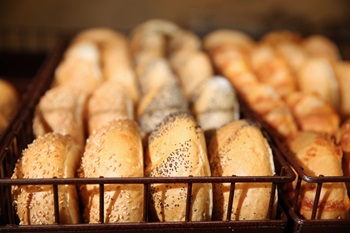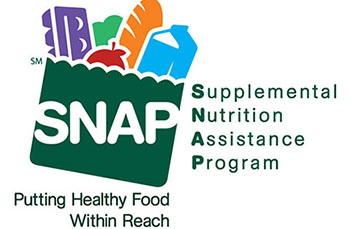By Christine Pollack, Vice President, Government Relations, FMI

Did you know that it costs extra dough to use a credit card when buying a loaf of bread at the grocery store? Sounds half-baked, right? Well, every time you use your credit card at the grocery checkout, the retailer is levied processing fees by the credit card networks, Visa and Mastercard, and the handful of big banks that issue most of the credit cards in the country.
While these hidden processing or “swipe fees” are a cost of doing business for a grocer to accept your credit card for purchases, the fees have increased exponentially and are forcing grocers to bake this cost into the price of a loaf of bread for all customers, regardless of how the customer pays – by credit or debit card, with cash, or even a SNAP EBT benefits card.
How does paying by credit card affect the price of a loaf of bread? One of the best explainer pieces I’ve seen recently is this great video from the Wall Street Journal detailing how card transactions are processed, what the typical fees are and how they impact grocery customers and food retailers (“Why Using Your Credit Card Is Getting More Expensive,” August 18, 2022).
In 2021, merchants’ card processing fees totaled $137.8 billion, up 25% from the previous year and more than doubled from the previous decade, per the Nilson Report. This equates to $900 on average per American family a year. The impact disproportionately hurts lower income Americans, those who rely on cash, and those who do not have access to high credit card rewards. The current credit card market leaves lower income Americans paying for bloated credit card rewards they will never enjoy. Even the federal government and taxpayers are paying higher prices for bread when a SNAP beneficiary checks out at the register.
Last month, bipartisan legislation was introduced by Senators Dick Durbin (D-IL) and Roger Marshall (R-KS) to bring competition to the credit card market and help grocery customers and food retailers. The Credit Card Competition Act of 2022, S. 4674, would inject much-needed competition in the marketplace by simply requiring a credit card to have to more than one network to route financial data on each credit card.
Right now, the card networks of Visa and Mastercard, whose purpose in life is to route financial data and not to issue credit cards, set all processing fees – the network fee they levy on merchants and the interchange fees that banks issuing credit cards levy on merchants. With no other networks able compete with Visa and Mastercard, these fees go unchecked and cannot be negotiated by grocers of any size. If more networks were able to compete for merchants’ businesses, this competition would lead to lower fees for food retailers and savings for grocery customers.
There certainly is good ole’ healthy (and delicious) competition these days in the grocery bread aisle, with numerous brands and types for Americans’ ham sandwiches, grilled cheese, French toast…(my stomach is growling). Sounds like the stale credit card market is more than ready for a slice of competition.


 Industry Topics address your specific area of expertise with resources, reports, events and more.
Industry Topics address your specific area of expertise with resources, reports, events and more.
 Our Research covers consumer behavior and retail operation benchmarks so you can make informed business decisions.
Our Research covers consumer behavior and retail operation benchmarks so you can make informed business decisions.
 Events and Education including online and in-person help you advance your food retail career.
Events and Education including online and in-person help you advance your food retail career.
 Food Safety training, resources and guidance that help you create a company food safety culture.
Food Safety training, resources and guidance that help you create a company food safety culture.
 Government Affairs work — federal and state — on the latest food industry policy, regulatory and legislative issues.
Government Affairs work — federal and state — on the latest food industry policy, regulatory and legislative issues.
 Get Involved. From industry awards to newsletters and committees, these resources help you take advantage of your membership.
Get Involved. From industry awards to newsletters and committees, these resources help you take advantage of your membership.
 Best practices, guidance documents, infographics, signage and more for the food industry on the COVID-19 pandemic.
Best practices, guidance documents, infographics, signage and more for the food industry on the COVID-19 pandemic.
